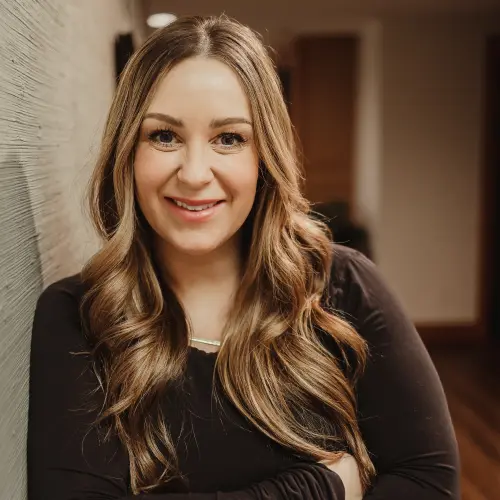
Table of Contents
Is IOP Safe?

Written By: Amanda Lundberg
May 19, 2023
8 min.
Charlie Health's Intensive Outpatient Program (IOP) prioritizes participant safety by maintaining a crisis management team, conducting thorough risk assessments, and implementing personalized safety plans.
Learn more about our Clinical Review Process
Table of Contents
In the rapidly evolving field of behavioral healthcare, intensive outpatient programming (IOP) is an increasingly vital component along the continuum of mental healthcare. These programs, which allow individuals to receive more-than-once-a-week treatment while maintaining their daily routines, are praised for their unique blend of flexibility, personalization, and effectiveness. However, as with any significant healthcare intervention, questions about safety and privacy are paramount.
Today, we delve into the safety of IOP with the Director of Crisis Prevention and Response at Charlie Health, Maggie Vitello, LCSW. We explore the rigorous measures in place to protect patients, the accountability structures that ensure quality, and the ways these programs are adapting to meet the diverse needs of those they serve.
What is an IOP, and how does it differ from other forms of treatment?
An IOP represents the most comprehensive form of outpatient care, offering more-than-once-a-week therapeutic treatment while allowing individuals to maintain their regular life responsibilities. Charlie Health’s IOP, which is virtual, involves roughly 9 to 12 hours of treatment per week, with a focus on facilitated groups. In fact, nine hours are dedicated to group sessions, which are conducted in three-hour blocks three times per week. Notably, Charlie Health pairs clients with groups of peers of a similar age, identity, and clinical focus, facilitating a sense of belonging and shared understanding. Clients also receive an hour of individual therapy and an hour of family therapy per week. Charlie Health runs for 9-12 weeks.
Who is eligible for Charlie Health’s IOP, and how do you determine if it’s the right treatment option for a specific individual?
At Charlie Health we typically serve people struggling with daily functioning who could benefit from multiple hours of treatment per week. The people we serve might have difficulty getting out of bed, attending classes, or maintaining sobriety, or might be grappling with significant safety concerns such as suicidal ideation or self-harm.
Our admisssions team, the first line of contact after a person reaches out to Charlie Health for support, gathers basic demographic and insurance information and connects people with an intake clinician for a comprehensive mental health assessment. If the clinician determines that Charlie Health is a good fit, the person will be assigned a group cohort and primary therapist to develop an individualized treatment plan. If IOP isn’t a good fit and a patient needs a higher level of care, like if they are actively suicidal or homicidal, we have an outreach team that can help connect them with other local, accessible resources.

Personalized virtual IOP
A higher level of care for teens and young adults
What are the qualifications of the staff members who provide care in an IOP, and what type of training do they have?
Therapeutic care is provided by highly-qualified staff members. Some are in their associate or junior phase of licensure, while others are fully licensed practitioners. To supplement psychotherapy, we also offer yoga and other contemplative and integrated therapies provided by certified practitioners.
Many of our clinicians bring valuable experience from working in higher acuity settings, such as residential facilities, hospitals, and other IOPs. For those who may not have this background but are seeking to gain it, we provide comprehensive training that encompasses understanding levels of care, managing patient acuity, safety planning, and implementing effective interventions suitable for this level of treatment intensity.
The number of people involved in a patient’s support team varies, but at Charlie Health, each client’s care team usually comprises three or four individuals. The team includes an individual therapist who also conducts family therapy, a care experience specialist who operates like a case manager, and multiple group therapists and facilitators.
Clinical teams have clinical directors or clinical supervisors who oversee the entire treatment process, and the primary therapist receives supervision from them. Clients might also be assigned a psychiatrist or psychiatric mental health nurse practitioner for medication management. Critically, we maintain a crisis management team that oversees patient safety.
What risks are associated with IOP, and how are they mitigated or managed by the treatment team?
Many IOP patients, including patients at Charlie Health, are dealing with safety concerns, like suicidal ideation or self-harming behaviors. We acknowledge that there are inherent risks involved in this care. To mitigate these risks, we ensure each client has a customized safety plan from their first intake session. This plan is tailored to clients’ needs and involves their caregiving systems or emergency contacts. If any risks are identified during treatment, we conduct a comprehensive assessment to understand and address these factors.
What is Charlie Health’s approach to handling mental health crises or emergencies when they arise during group sessions, and how do you ensure the safety of all participants in the group?
Charlie Health has a crisis prevention team working in the background to handle clinical emergencies that may arise during and between programming. Suppose a client brings up a safety concern during a group that is not possible or appropriate to address collectively. In that case, the client is moved to a private virtual room to discuss the concern with a Care Coach and crisis manager as necessary. If a risk is still present after this discussion, we conduct a safety planning session, setting up a plan for how the patient will continue to get care in and outside of Charlie Health. These conversations aim to stabilize a client and, when possible, get them back to the group. But, we must maintain the safety of all group participants, meaning that some mental health crises are handled individually.
Are there any restrictions on patients’ activities or behaviors while participating in an IOP, such as drug or alcohol use?
While there aren’t strict restrictions on patients’ activities or behaviors during their participation in our IOP, there are certain expectations. For instance, if a participant is under the influence of drugs or alcohol during a session, we may need to pause the session, as their ability to effectively engage and receive support is compromised. Our goal is to meet clients where they are and encourage behaviors and habits that support the treatment process and promote overall wellness.
What type of support is available to patients who may be struggling or experiencing setbacks during their participation in an IOP?
If a patient struggles to engage in our IOP, we don’t automatically assume they’re avoiding treatment. Instead, we consider treatment barriers that might exist and try to support them.
The first line of support is each client’s primary therapist, who reaches out to the patient if they’re struggling to show up in sessions or feeling like their mental health is deteriorating. Patients are also assigned a care experience specialist, who serves as a mental health liaison between the patient and their treatment team. This additional support is important in cases where a patient struggles to connect with a member of their treatment team. The presence of another professional with whom the client can communicate often prevents them from abandoning treatment.
Join the Charlie Health Library
Get mental health updates, research, insights, and resources directly to your inbox.
You can unsubscribe anytime.
Are there any potential downsides or drawbacks to participating in an IOP, and how can these be addressed or avoided?
As with any form of care, IOP may not be the best fit for everyone. Some individuals may struggle with group settings due to social anxiety, neurodivergence, or selective mutism. We do have customized groups that clients can opt into if they identify as neurodivergent, and we find that even clients who identify as struggling with social interaction benefit from practicing these skills in the safe container of the group.
How does confidentiality work in an IOP, and what type of information is shared with family members or other healthcare providers?
At Charlie Health, confidentiality is paramount. When communicating with other healthcare providers, we ensure that we have a release of information (ROI) in place. We have some flexibility in crisis situations, but we prioritize obtaining these ROIs upfront.
We consult with the client and their family about who they want us to contact. For instance, some people may not want us to maintain open-ended communication with their schools, so we collaborate with the client to determine what information should be shared.
While we aim to include family in the treatment process, it doesn't mean we disclose all that is discussed during therapy sessions, as that would compromise confidentiality. We predominantly let the client take the lead in deciding what information to share with their family. However, safety concerns are an exception. We clarify upfront that if there are any risks to the client's safety, we must disclose this information to ensure their protection.
What are the benefits of participating in an IOP, and how can it help someone in their recovery or mental health journey?
A significant advantage to IOP is the power of group sessions, which are often absent from other forms of treatment.
Group sessions can facilitate a patient’s healing journey by allowing them to hear from peers and share their experiences. This creates a sense of community and gradually exposes participants to new approaches and ways of thinking.
As individuals become more comfortable in the group setting, they may be more willing to speak up and explore their own journey and maybe even offer guidance to newer clients, further integrating their own coping skills and wellness practices.
How is progress measured in an IOP, and what outcomes can be expected from this type of treatment?
Progress is primarily measured by observing and measuring improvements in functional impairment. We customize treatment plans based on the realities of a client's life, where they're experiencing difficulties, and what they are ready to work on. We work toward improvements in social interactions, school or work attendance, sleep routines, personal hygiene, and safety, among other areas.
Additionally, we conduct a treatment plan review for each client every month. The goal of these reviews is to revisit the original treatment goals, evaluate progress, and determine if the focus of treatment needs to shift or if the client should continue with the program for another month.
In addition to individual, group, and family sessions, some clients may have homework. Individual therapists will decide if assigning homework is appropriate. Similarly, in our group treatment, some discussions may involve at-home practice exercises. These are usually basic tasks, such as practicing a skill we've worked on in a session, with the aim of processing in the next group meeting.
We know this approach works for our clients. Studies show that our IOP improves access and outcomes for teens and young adults in crisis, especially young people with marginalized identities. According to a peer-reviewed study, from intake to discharge, Charlie Health clients experienced a significant reduction in self harm, depression symptoms, and suicidal ideation.
Get support from Charlie Health
Charlie Health prioritizes the safety and well-being of its clients, and its approach to handling mental health crises or emergencies is thorough and effective. Through a combination of individual therapy and facilitated groups, Charlie Health provides clients with a safe and supportive environment where they can work through their struggles with the guidance of trained professionals and the support of their peers.
The group dynamic allows clients to learn from others' experiences and feel less alone in their journey, while the individual therapy component allows for personalized treatment tailored to each client's unique needs. Get in touch with our team to learn more today.




